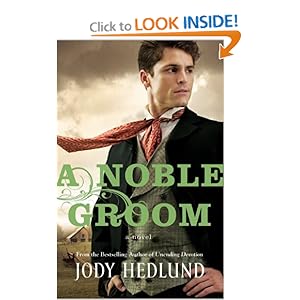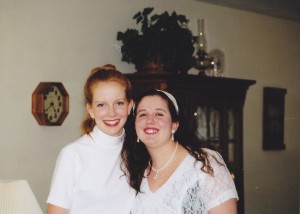 The young heroine in Sinners and the Sea is destined for greatness. Known only as “wife” in the Bible and cursed with a birthmark that many think is the brand of a demon, this unnamed woman—fated to become the mother of all generations after the great flood—lives anew through Rebecca Kanner. The author gives this virtuous woman the perfect voice to make one of the Old Testament’s stories come alive like never before.
The young heroine in Sinners and the Sea is destined for greatness. Known only as “wife” in the Bible and cursed with a birthmark that many think is the brand of a demon, this unnamed woman—fated to become the mother of all generations after the great flood—lives anew through Rebecca Kanner. The author gives this virtuous woman the perfect voice to make one of the Old Testament’s stories come alive like never before.
Desperate to keep her safe, the woman’s father gives her to the righteous Noah, who weds her and takes her to the town of Sorum, a haven for outcasts. Alone in her new life, Noah’s wife gives him three sons. But living in this wicked and perverse town with an aloof husband who speaks more to God than to her takes its toll. Noah’s wife struggles to know her own identity and value. She tries to make friends with the violent and dissolute people of Sorum while raising a brood that, despite its pious upbringing, develops some sinful tendencies of its own. While Noah carries out the Lord’s commands, she tries to hide her mark and her shame as she weathers the scorn and taunts of the townspeople.
But these trials are nothing compared to what awaits her after God tells her husband that a flood is coming—and that Noah and his family must build an ark so that they alone can repopulate the world. As the floodwaters draw near, she grows in courage and honor, and when the water finally recedes, she emerges whole, displaying once and for all the indomitable strength of women. Drawing on the biblical narrative and Jewish mythology, Sinners and the Sea is a beautifully written account of the antediluvian world told in cinematic detail.
Sigh. This is a hard review for me to write. As I’ve mentioned before, I only offer to review books I anticipate liking, which means most of my reviews get pretty good star ratings. I generally enjoy Biblical fiction and the idea of the story of Noah’s wife was irresistible.
Sinners and the Sea is an interesting read that kept me “turning pages” (or pushing the arrow on my Kindle, anyway). But at the same time, I spent about half the book with an eyebrow raised at the the fantastical interpretations of parts of the story of Noah’s nameless wife. I’ve seen reviews praising the “mythical” elements as a creative and fascinating retelling of the story of Noah, but sadly, I can’t agree with that :/. For me, it stretched my incredulity way too far.
Noah’s wife has no name because of the wine-colored birthmark on her forehead. Her father believed by not giving her a name, it would shield her from the cruel taunts of the local people. It didn’t work. Eventually, she marries Noah to protect her. She’s 19. He’s 400. They live on the outskirts of a town that makes Sodom and Gomorrah look tame. Noah’s job is to get them to repent, but, well… he’s more than a little harsh about it. It’s not until the very end – like the last few pages – that I even begin to like him. When he finally gives a reason for why he was completely uninvolved with his sons as they were growing up, sons he desperately wanted, I kind of understand, but…
There’s a lot of mythical or fantastical elements I could write off as interpretation, etc. that simply didn’t resonate with me. Instead, it was too much for me. I probably would have decided not to even review it in the end, but there were a few other things that compel me to go ahead. There were a number of things that would offend many people I know.
- Several uses of the word d*** – and not just in the “God’s going to damn us all for evil” sense.
- Several uses of crass terms for male genitalia – not just euphemisms, though there were plenty of those as well
- Not too explicit descriptions of life in the nearby town, including prostitution, death, murder, mercenaries and a band of “pirates” that truly disturbed me.
All in all, most of it I could write of as a well-written but ultimately not for me. But with those other things, I’ve got to say something.
I will add the caveat that NetGalley copies are generally Advance (not final) copies, but my understanding is that the edits are generally minor (punctuation, spelling, homonyms, etc.) not more substantive.
With that, I did finish the book in a fairly short period of time. It was well-written, but ultimately, not something I could recommend.
Overall rating: 4 out of 10 stars (and, sadly, that feels generous :()
Thanks to NetGalley and the publisher for an ecopy of this book in exchange for my honest review.
 In 1882, Sarah Whittier dreams of opening an art studio run by immigrant women. She plans to use the house left to her by family friend Josiah Cady as collateral for her studio. But will all be lost when the inheritance is challenged by an angry man claiming to be Josiah’s son and legal heir? Rumor of gold nuggets hidden in the house, place Sarah’s life in danger. Her future uncertain and her safety threatened, Sarah has nowhere to turn. That is, unless she can soften a vengeful man’s heart–and they both learn that love is finer than any gold.
In 1882, Sarah Whittier dreams of opening an art studio run by immigrant women. She plans to use the house left to her by family friend Josiah Cady as collateral for her studio. But will all be lost when the inheritance is challenged by an angry man claiming to be Josiah’s son and legal heir? Rumor of gold nuggets hidden in the house, place Sarah’s life in danger. Her future uncertain and her safety threatened, Sarah has nowhere to turn. That is, unless she can soften a vengeful man’s heart–and they both learn that love is finer than any gold.





